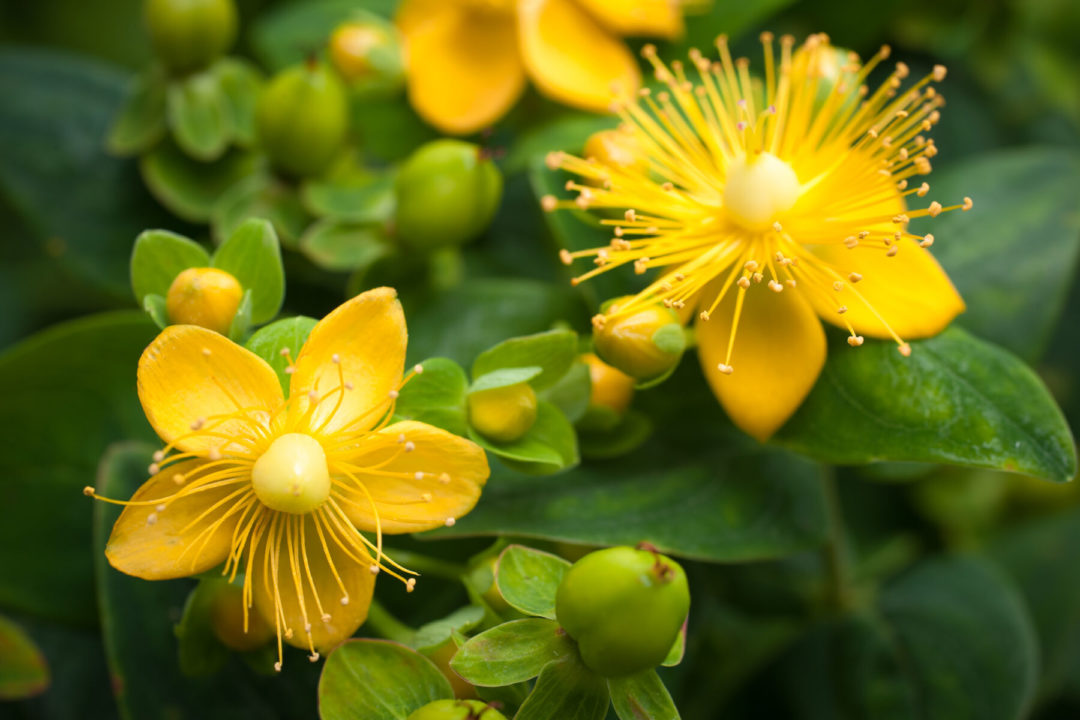Hypericum perforatum, or St. John’s Wort, is a flowering plant native to Europe, western Asia and North Africa. It is named after St. John the Baptist, because its signature yellow flower appears at the time of the summer solstice near the day of the feast. Today, St. John’s Wort is grown in many places, and it is a vital crop in Australia, which now produces upwards of 20% of the product sent around the world.
St. John’s Wort is an herb that has been used for medicinal purposes around the world for thousands of years for depression and anxiety, as well as for its antibacterial and healing properties.
Currently, St. John’s Wort is associated with relief from depression, menopausal symptoms, attention deficit hyperactivity disorder (ADHD), obsessive-compulsive disorder, and other conditions. There are many popular topical uses, including sore muscle relief, broken capillaries including varicose veins, spider veins and bruises. It is also commonly used for skin conditions and wound healing.
It is available in tablets, capsules, liquid tinctures, bulk and bag tea, and in cut and powdered form. It also is available in salves, creams and lotions.
Although St. John’s Wort is a natural product used by millions, depression and anxiety are serious health conditions, so consumers should always consult a healthcare practitioner. Having a dialogue is even more crucial for those who are already on prescribed medications for anxiety or depression: St. John’s Wort has been known to reduce the effects of other medications including birth control, heart medication, blood thinners, and statins. St. John’s wort may also cause photosensitivity to sunlight, especially when taken in larger doses. St. John’s wort should not be taken during pregnancy or while breastfeeding, and children should never use it without their pediatrician’s recommendations. It’s also essential to read product labels to know the exact dosage; many of the available products are standardized to contain 0.3% Hypericin. With topicals, users should test a small area of skin to check for possible reactions and sensitivity, although it is generally recognized as safe.
St. John’s Wort has traditionally been very effective, but everyone may respond differently, so it is important for all who take this and any herb to listen to their body.










